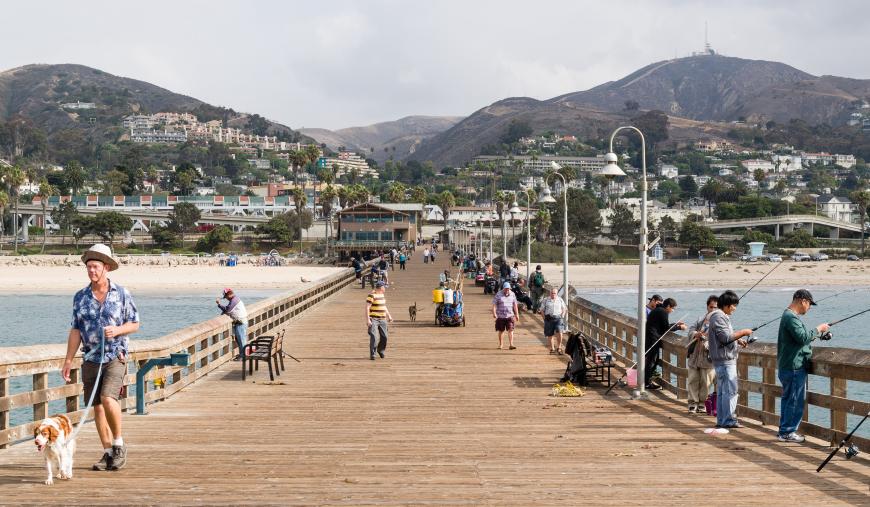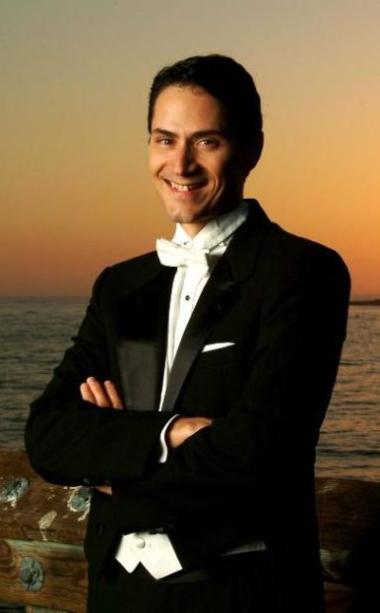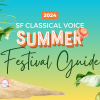
Now in its 29th season, the Ventura Music Festival kicks off another year with two weekends of eclectic musical fare, July 25–28 and Aug. 2–4. Violinist and educator Nuvi Mehta, who has been artistic director of the festival since 2004, explained how he’s expanded the programming, which began with classical chamber music, over two decades.
“I had two visions,” recalled Mehta. “Number one, I wanted to drop the word ‘chamber’ because even in the classical world, we wanted to bring orchestras occasionally and solo voice recitals. I wanted to expand people’s definition of chamber music. Number two, even beyond that, I wanted to expand genres, bring in top musicians in a variety of genres. It was already blooming, but then there was a big explosion of crossover artists from the classical side.
“I wanted to be able to program jazz and other things,” added the artistic director, who is a member of the distinguished Mehta musical family — his cousin is conductor Zubin Mehta, and he’s the son of pianist Dady Mehta and brother of countertenor Bejun Mehta. “We’ve done roots music, bluegrass, crossover from world music to jazz. We’ve done a lot of different things, and that’s been the philosophy since I can remember. At the time, we exploded that Duke Ellington quote: ‘There are only two kinds of music — good and bad.’ And that’s what we have on the festival this year. We interweave all kinds of music.”

Indeed, opening weekend epitomizes Nuvi Mehta’s philosophy. On July 25, Grammy Award-winner fiddler Michael Cleveland and his bluegrass band, Flamekeeper, will perform at Olivas Adobe Historical Park, an outdoor venue that seats about 500. On July 26, Los Angeles Chamber Orchestra will perform J.S. Bach’s Brandenburg Concertos Nos. 2–5, led by concertmaster Margaret Batjer at Ventura College Performing Arts Center, which is the site for the rest of the festival’s concerts.
The weekend fun on July 27 continues with tap dancer and choreographer Caleb Teicher and pianist Conrad Tao, who return with a new show, “Counterpoint II,” which explores the intersections between music and dance. And if you’d like a little morning repast before your music, check out “Bach, Baroque, and Brunch” on July 28, which features Mehta on violin and Greg Anderson on piano, bringing the first weekend of the festival to a close.
“A theme has emerged this year by happenstance,” explained Mehta. “It wasn’t intended [but] had to do with long negotiations with artists, and suddenly, as if coming off the page in bas-relief, we saw that Bach had become a theme. Once we saw that, we leaned into it.
“And,” added Mehta, “despite the fact that we have jazz crossover, Bach is still a thread. All but two of our programs have at least one piece by Bach, a transcription or crossover. So by the end of the first weekend, people will have learned a little bit about Bach.”
The second weekend features an equally diverse mix of artists and programming. Singer-songwriter and festival favorite Perla Batalla returns on Aug. 2. She’ll showcase works from her diverse discography, including several Spanish songs. The next day, for a change of musical pace, guitarist Jason Vieaux and accordionist Julien Labro will take listeners on a Latin-inspired journey through the works of Astor Piazzolla and Brazilian composer Radamés Gnattali.
Said Mehta: “Jason has established himself over the past 15–20 years as one of this generation’s leading classical guitarists. I’ve presented him at different organizations; he’s prolific and indefatigable. He always has 304 different projects going, [and] this collaboration with Julian with the bandoneon and accordion is crossover — and Bach [shows up] again, but in their own arrangements and transcriptions.”
As for the festival’s closing concert on Aug. 4, the piano duo Greg Anderson and Elizabeth Joy Roe are sure to bring the heat.
“It’s an absolute barn burner in terms of crossover,” gushed Mehta. “They burst onto the scene not only because of their playing but because of their filmmaking. Anderson and Roe began creating videos before YouTube, showcasing their extraordinarily brilliant, vivacious, tantalizing transcriptions. They also play every kind of classical music, but they’ll do other things as well — or bring jazz and ragtime influences to Mozart, which they [have] transcribed. They have been a hit for us in Ventura over the years.”
Mehta is also attuned to the festival’s audiences and wants them to know that “if you only like classical music, we bring artists at a level that’s going to be at the top. It takes years to cultivate relationships with artists. If you’re in L.A., you’re going to get to hear top names on a much more regular basis.”
At the same time, he acknowledged that “what we bring is this unique kind of mix that you cannot get anywhere else. The festival is a gem and reminds audiences of how beautiful Ventura is. It’s [not] built up, and [it’s] a charmingly old-world beach community. The downtown area has wonderful restaurants and shops. It’s between the hills and the beach. There’s no place where you don’t have a view of the islands.”
And the best part, Mehta pointed out, is that “spending a weekend here and hearing great music is kind of a no-brainer.”




